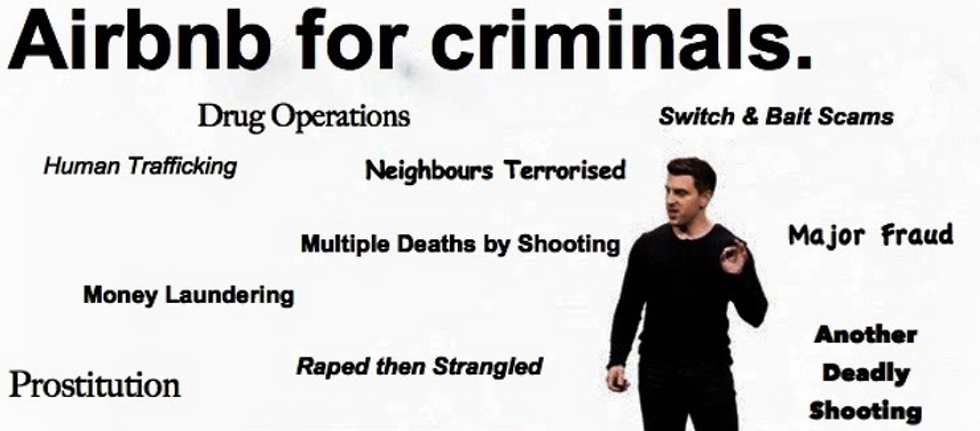Airbnb Not All Ends Well !
- 2244 Online

- Jun 24, 2021
- 3 min read
Bloomberg Businessweek June 21, 2021 pp48-55 “AIRBNB has a nightmare problem” “When violent crimes happen during stays, the company’s secretive safety team is called on to sooth guests, help families and prevent PR disasters” by Olivia Carville

Image from neighboursnotstrangers.com
Read the Bloomberg Businessweek for all detail
Summary provided by 2244
“Founded in 2008 by design students Chesky and Joe Gebbia, along with engineer Nate Blecharczyk, Airbnb” now has “5.6 million listings” making it the “biggest hospitality company in the world.” With that success Airbnb was able to list as a publicly-traded stock in December 2020. Since going public the stock has doubled its market capitalization to $90 billion.
Growth is good but comes with problems particularly early on when systems are still being developed. According to Airbnb about 0.1% of 200 million bookings end up reporting safety issues from guests or even from hosts. Although 0.1% is a small percentage with 200 million bookings that calculates to 200,000 problem stays. The most serious issues “are transferred to the internal safety team.” The team and its tools have evolved over time and now a “24-hour customer-support hotline, and a new trust-and-safety department.” Airbnb’s plan of action is “to make it right” best they can. “We all know that you can’t stop everything, but it’s all about how you respond….you have to make it right.”
What problems have guests and hosts encountered?
Several examples are detailed in the article but the most frightening incidents guest report range from shootings, sexual assault, battery, to concealed cameras. Guests have also been exposed to substandard housing conditions including deadly carbon monoxide poisoning. Hosts are not unscathed either reportedly being victims of sexual assault, property theft and ransacking of their property.
What are the root causes of these troubling reports?
First, the Airbnb model may be too altruistic believing that “strangers can trust one another” without any supervision or security.
Second, Airbnb does not delve deeply when performing background checks on hosts.
Third, Airbnb skirts municipal laws by facilitating short-term rentals even if municipal law limits residential rentals to 30 days or more. Hosts carry some blame as they usually don’t list their homes as rental space as required by many locales.
Fourth, Airbnb has no key exchange procedures. So mechanical keys, that are easily duplicated are often exchanged from renter-to-renter or host-to-renter in a very insecure way. Keys are left for pick-up at shops and other spots where the recipient does not need to show identification to obtain the keys.
What are potential solutions for these common causes?
Better background checks and a digital key system are relatively straightforward fixes that would readily improve security.
Airbnb has evolved a better 24 hour customer support that promptly deals with serious issues.
How does Airbnb handle crises?
As an example of doing right by a victim, after a woman was raped in an Airbnb, Airbnb’s crisis management team sprung into action; the woman was relocated “to a hotel, paid for her mother to fly-in from Australia, flew them both home, and offered to cover any health or counseling costs.” In this case the perp, who had a set of duplicate keys to the rental, returned to the scene of the crime within an hour. At that time, the police were on-site and captured the rapist. While trying to make things right for the victims, Airbnb also has as a top priority keeping Airbnb’s name out of crime reports and press reporting. Airbnb wasn’t mentioned during the court proceeding or by the local media. Ultimately “Airbnb wrote the women a check for $7 million...in exchange she signed an agreement not to talk about the settlement or ‘imply responsibility or liability’ on the part of Airbnb or the host.”
As for the host facility, when needed Airbnb contracts “body-fluid crews to clean blood off carpets, arrange for contractors to cover bullet holes in the walls and deal with hosts who discover dismembered human remains.” The jobs of the crisis management agents can be stressful and traumatic. In total, it is estimated that Airbnb pays out about “$50 million annually...to hosts and guests, including on legal settlements and damage to homes.”



Comments